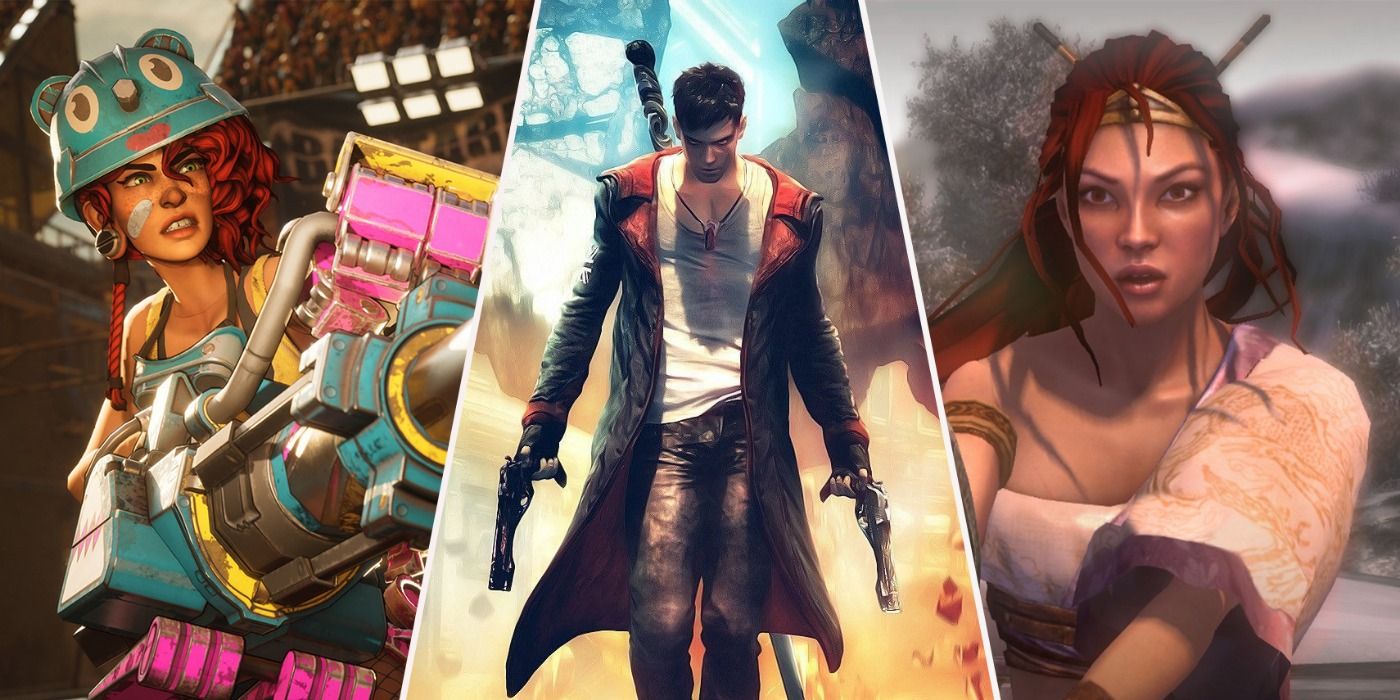
Founded as Just Add Monsters at the turn of the century before transitioning into its more famous name in 2004, Ninja Theory has cemented itself as one of gaming's main studios when it comes to western action titles. Since its inception, the developer has worked on single-player console exclusives, Disney Infinity, VR games, and even a mobile title; if nothing else, Ninja Theory has proven to be quite versatile.
RELATED: Every Prince Of Persia Game, Ranked
Ninja Theory's games tend to attract a passionate following, be it for their inventive combat, sense of adventure, or association with iconic franchises. The greatest Ninja Theory games rank among the best titles on their respective consoles, but the studio has an inconsistent resume. What is the highest-rated game by the studio according to Metacritic?
Disclaimer: Only games specifically developed by Ninja Theory will be considered, eliminating Disney Infinity and A Star Wars VR Series: Vader Immortal – Episode I. DLC will also not be covered. Finally, the highest-rated versions of each game will be included.
8 Fightback (iOS) – 57
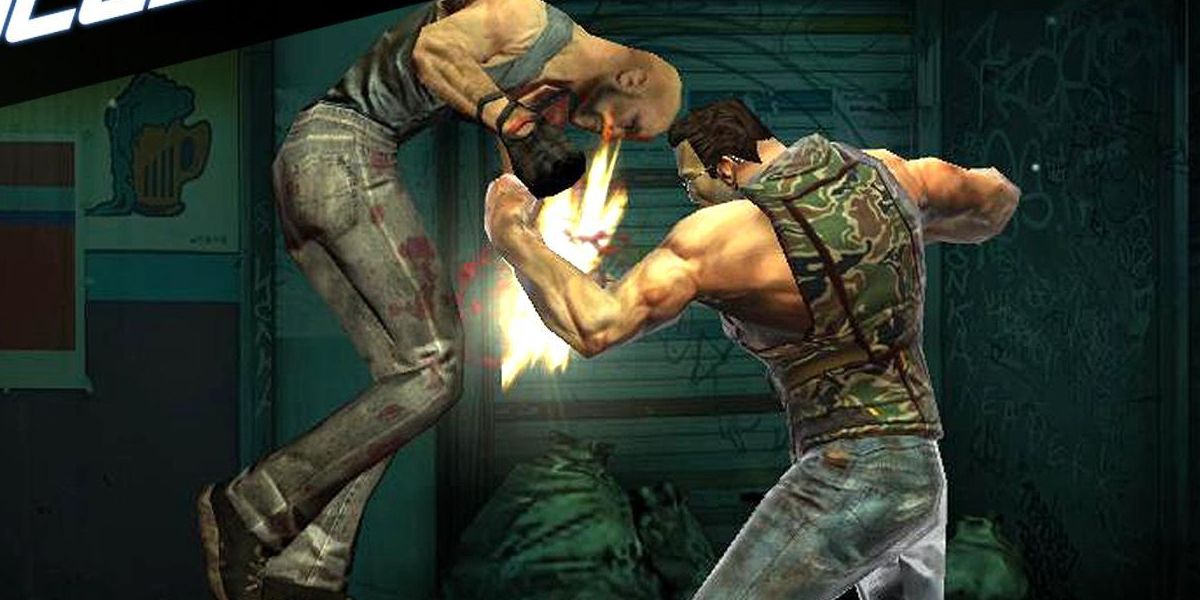
Following a string of commercially disappointing releases, Ninja Theory turned to the mobile scene with a free-to-play beat-'em-up. Fightback does demonstrate the studio's knack for crafting accessible but engaging combat, and the touch controls are fine, but this a throwback that does very little to differentiate itself from the classic genre's standout releases.
Fightback could have been a serviceable mobile title if it was not marred by some awful monetizing practices that constantly hamper the game's momentum. Taking all these things into account, Fightback marks a low point in Ninja Theory's history.
7 Dexed (PS4) – 65
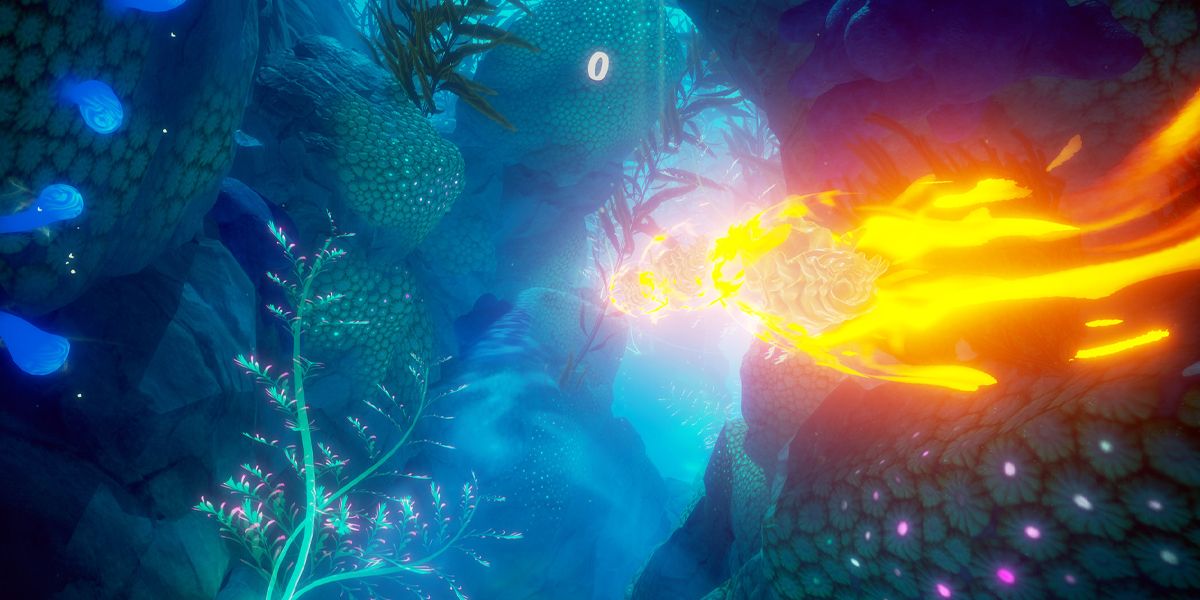
Shifting to virtual reality, Dexed is not the most fulfilling of experiences. With only four levels and gameplay that does not develop as the game progresses, this rail shooter presents some pretty visuals but mostly only serves as a way to kill an hour.
Dexed boils down to locking on targets and then shooting; at face value, this might sound like most rail shooters, but Dexed really does not go much further than the basics. It feels more like a tech demo than a full game, which is reflected by its $9.99 price tag.
6 Bleeding Edge (Xbox One) – 66
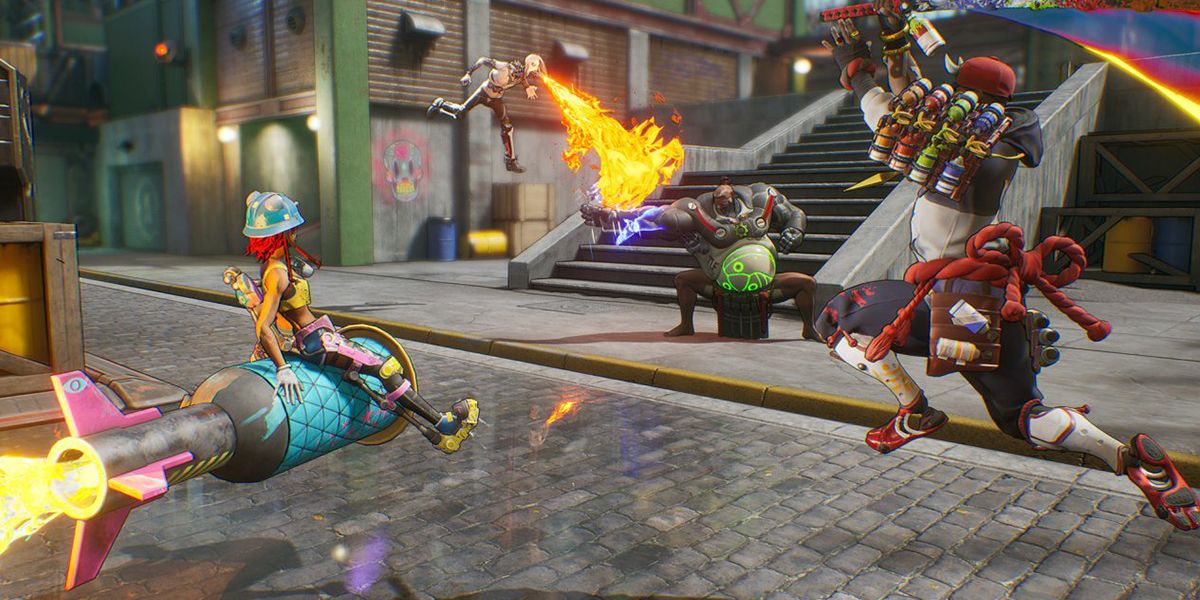
Less than a year following Bleeding Edge's debut, Ninja Theory stopped adding new content to the multiplayer game. For a studio that has principally focused on single-player experiences, Bleeding Edge's announcement came as something of a surprise.
RELATED: 10 Bleeding Edge Builds Everyone Should Try
Launching in 2020, the chaotic 4v4 brawler offers fun melee combat, a colorful roster of characters, and endless style; however, Bleeding Edge felt outdated when it was revealed. Balancing issues, an unclear identity, and poor implementation of teambuilding mechanics meant Bleeding Edge struggled to expand beyond a dedicated but small player base.
5 Kung Fu Chaos (Xbox) – 68
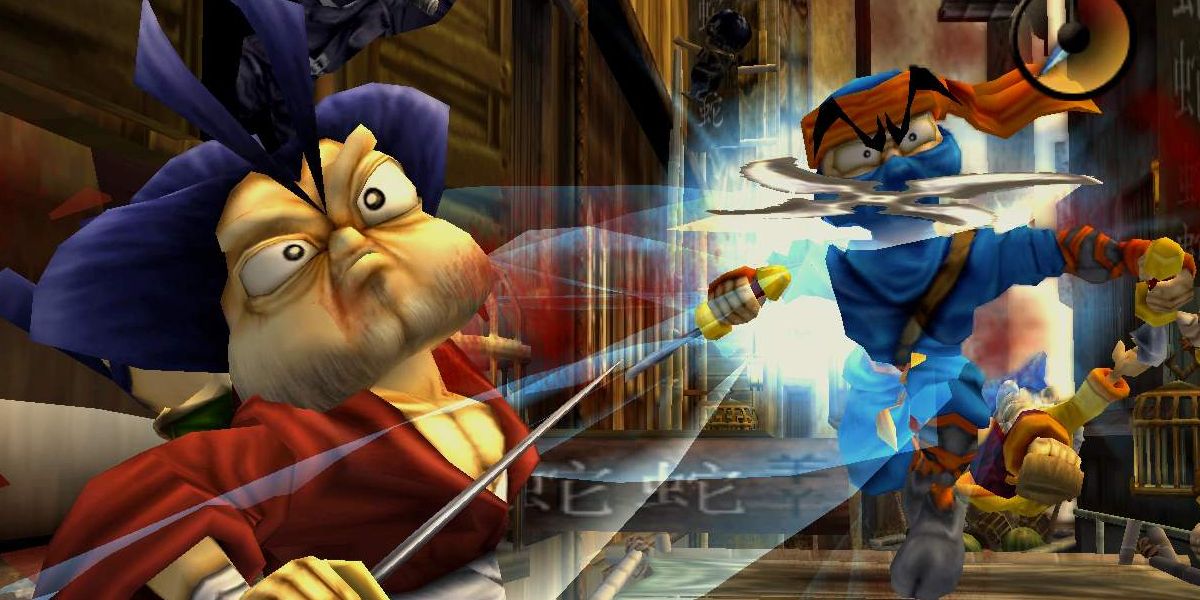
Prior to changing its name to Ninja Theory, the studio would release one game under the Just Add Monsters name. An Xbox exclusive, Kung Fu Chaos is a party game that is at its worst when more people are playing it. A four-person fighter that is a bit too simplistic for its own good, Kung Fu Chaos pays homage to action movies through its parody characters, environments, and tone. Its single-player content is better than most party games, but the reverse holds true for its multiplayer.
Kung Fu Chaos is, at best, a footnote in Ninja Theory's legacy. While by no means horrible, there is little reason to revisit this title in 2021.
4 Heavenly Sword (PS3) – 79
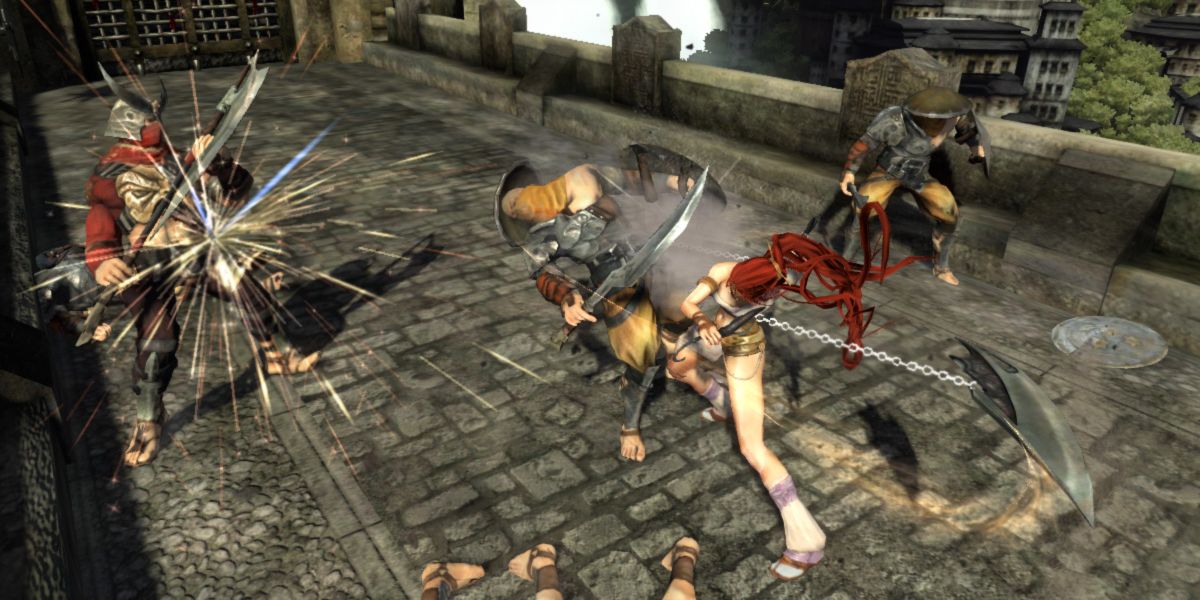
Highly regarded for its state-of-the-art visuals and enjoyable combat system, Heavenly Sword shaped Ninja Theory's identity as a studio. Overhyped due to the PS3's weak lineup of games at the time, Heavenly Sword pulled underwhelming sales figures and earned a decent but not amazing critical reception.
Cut from the same cloth as God of War and, to a lesser extent, Devil May Cry, Heavenly Sword's fast-paced combat makes up for a lack of depth with a healthy supply of cinematic flair. The story, while short, was also good, particularly its presentation.
3 Enslaved: Odyssey to the West (Xbox 360) – 82
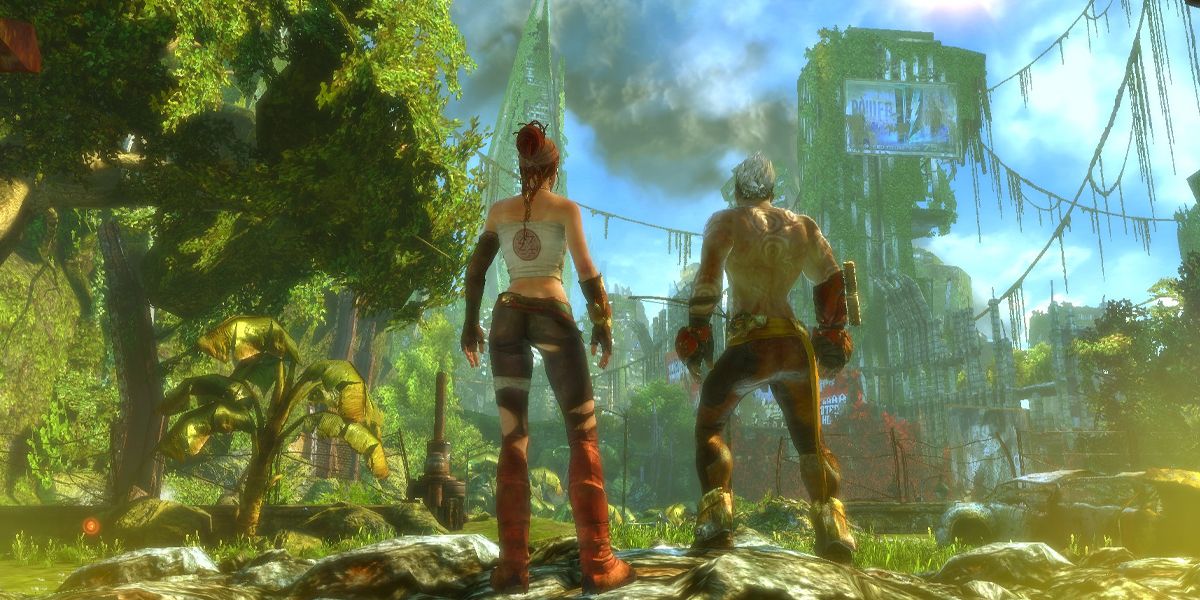
In retrospect, Ninja Theory's reputation as a combat-focused developer might be a touch inaccurate, as gameplay has not consistently been the highlight of the studio's work. Enslaved: Odyssey to the West falls flat when the focus is squarely on combat or platforming, but the action-adventure title shines brightly in most other departments.
RELATED: 10 PS3 Games that Still Need to be Remastered
Set in a post-apocalyptic world that takes inspiration from Chinese mythology, Enslaved follows an odd couple, Monkey and Trip, who are forced (quite literally in the case of the former) to rely on each other. Along with visiting many creative locations, Enslaved also takes its characters on a convincing personal journey.
2 DmC: Devil May Cry Definitive Edition (Xbox One) – 86
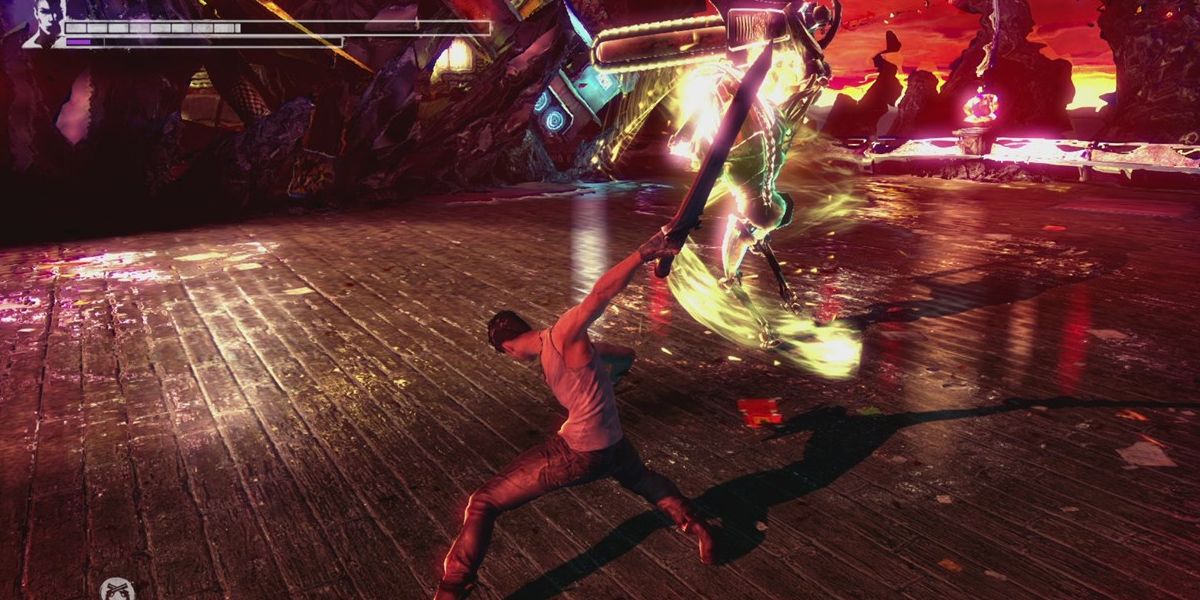
Ninja Theory got arguably its biggest break when the studio got picked to create a Devil May Cry game. Released in 2013, DmC: Devil May Cry was a hit with critics but polarizing with fans, many of which saw it as a simplification of the franchise's gameplay that abandoned the series' trademark aesthetic.
DmC: Devil May Cry Definitive Edition improved many issues present in the base game, most importantly an upgrade to 60fps. Viewed on its own, DmC has Ninja Theory's most satisfying combat system and a story that ranks among the studio's weakest.
1 Hellblade: Senua's Sacrifice (Xbox One) – 88; Hellblade: Senua's Sacrifice VR (PC) – 87
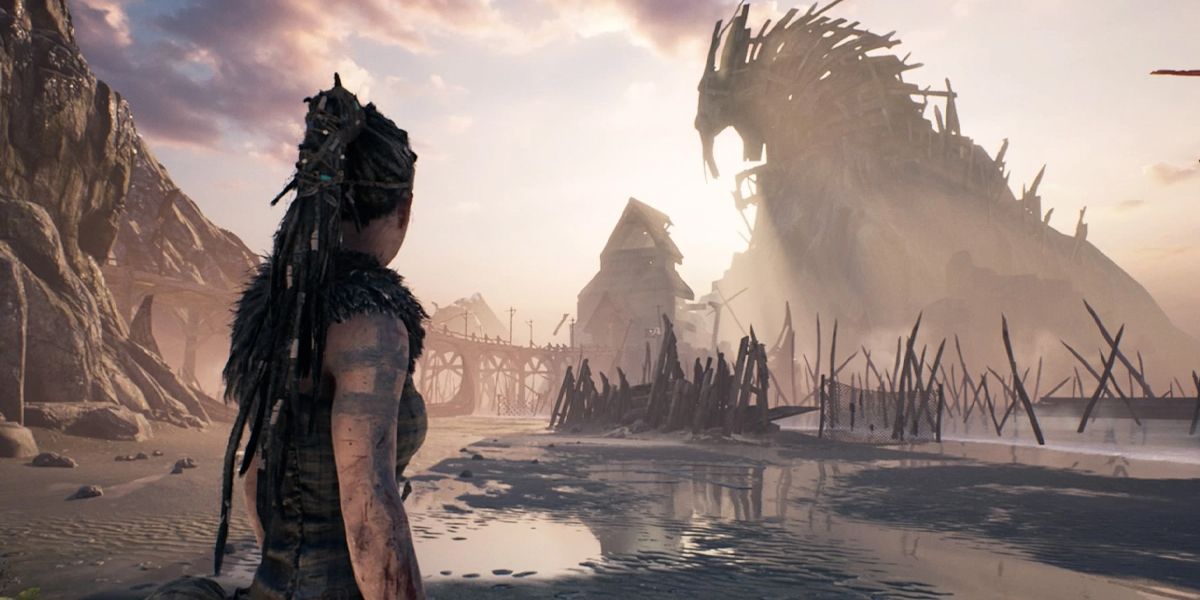
A passion project for the studio, Hellblade: Senua's Sacrifice presents an ambitious dive into mental illness, specifically psychosis. Soaked in Norse mythology, the game follows Senua as she travels through Helheim in an attempt to bring back her dead lover. Hellblade's story is driven by grief and fear, two themes that are maturely explored as Senua struggles with both external and internal challenges.
Hellblade breaks up its story with puzzle and combat sections, both of which are competently done but not especially memorable. However, the narrative is more than strong enough to carry the game. The VR version is also one of the best experiences available on Oculus systems.
NEXT: 5 Xbox Series X Games You Didn't Know Were Coming In 2021 (& 5 Rumored Ones We Want)

